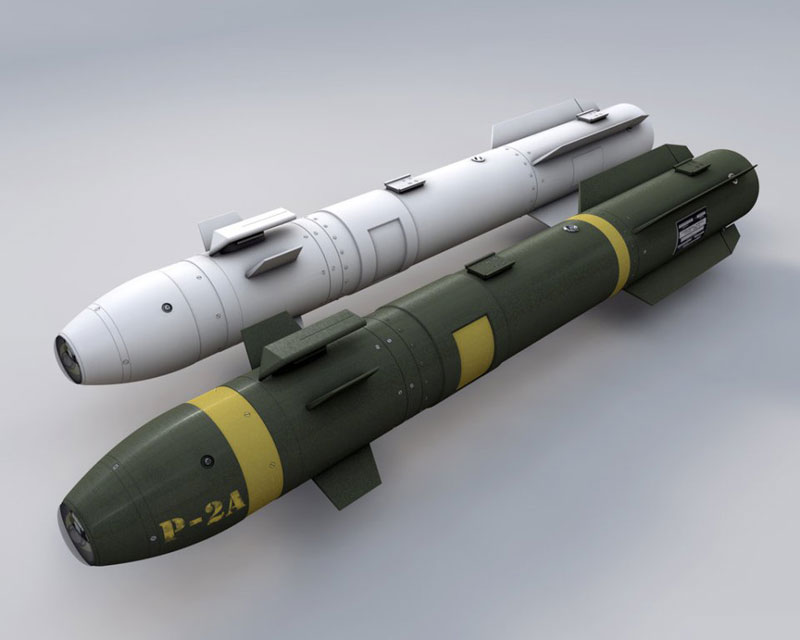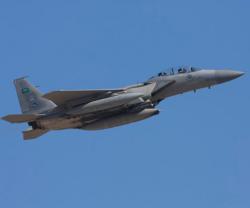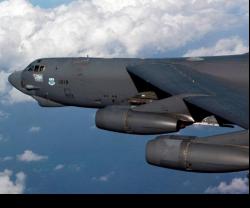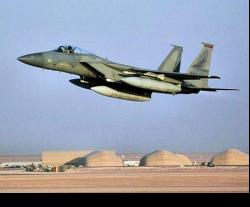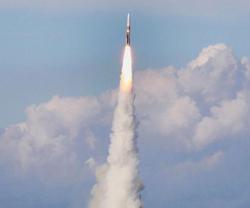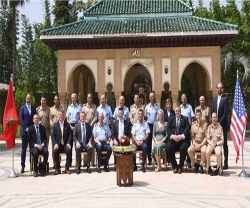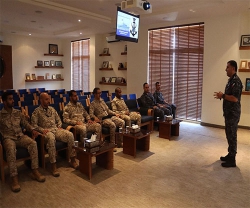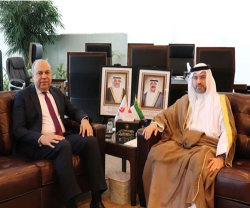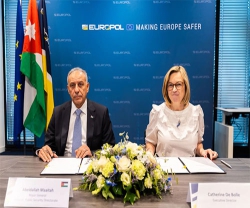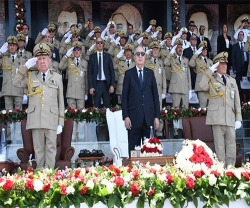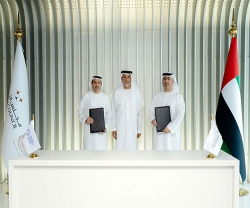Top US arms makers are straining to meet surging demand for precision missiles and other weapons being used in the US-led fight against Islamic State and other conflicts in the Middle East, according to senior US officials and industry executives.
Global demand for US-made missiles and so-called smart bombs has grown steadily since their use in the first Gulf War. But the United States and a host of allies are now rushing to ensure a stable supply of such weapons for what is expected to be a long fight against Islamic State, whose rise has fueled conflict in Syria and across a swathe of the Middle East.
US officials say arms makers have added shifts and hired workers, but they are bumping up against capacity constraints and may need to expand plants or even open new ones to keep weapons flowing. That could create further log-jams at a time when US allies are voicing growing concern that Washington's processing of arms sales orders is too slow.
Islamic State's deadly attacks in Paris last month have added urgency to the US-led bombing campaign against the group in Iraq and Syria. The campaign had resulted in 8,605 strikes at an estimated cost of around $5.2 billion as of December 2.
Meanwhile, a Saudi-led coalition including Bahrain and the United Arab Emirates and backed by Washington is carrying out a nine-month-old military campaign against Iran-backed rebels in Yemen. Gulf States are also supplying US-made arms to rebels fighting Syria's government in that country's four-year-old war.
“It's a huge growth area for us. Everyone in the region is talking about building up supplies for five to ten years. This is going to be a long fight against Islamic State,” said one executive with a US weapons maker, who was not authorized to speak publicly.
The impact is palpable in Troy, Alabama, where Lockheed Martin Corp builds its 100-pound Hellfire air-to-ground missiles at a 3,863-acre highly secured facility surrounded by woods and horse pastures. Realtors are adding staff in anticipation of new hiring at the plant, and the large grocery chain Publix is opening a store soon.
Lockheed has added a third shift at its plant, which employed 325 workers as of February, and is now at “maximum capacity,” said one executive familiar with the issue. The company announced in February that it will add 240 workers by 2020 and expand the facility, which also produces a 2,000-pound air-to-surface stealthy missile.
Frank Kendall, the Pentagon's chief arms buyer, said there has been particularly strong demand for the Hellfire missiles. At $60,000 to $100,000 apiece they are inexpensive compared to many missiles and can be launched from everything from aircraft, helicopters and ships to destroy armored vehicles or punch into buildings.
Kendall and other senior US officials told Reuters they are working with Lockheed, Raytheon Co and Boeing Co. to ramp up production of precision munitions and potentially add new capacity.
“We are watching that closely. We are looking at the need to increase capacity,” Kendall said.
Defense shares have performed strongly in recent months on expectations of better results, and many soared after the attacks in Paris.
Total US foreign military sales approvals surged 36% to $46.6 billion in the year through September 2015 from around $34 billion a year earlier. Approved sales of missiles, smart bombs and other munitions to US allies jumped to an estimated $6 billion in fiscal 2015 from $3.5 billion a year earlier.
This year alone, the US government has approved the sale of Hellfires to South Korea, Pakistan, Saudi Arabia, Lebanon, France, Italy and Britain. In June, the US Army said it had asked Lockheed to boost production of the Hellfire from 500 per month to 650 by November.
Also in high demand, Kendall said, are Boeing’s Joint Direct Attack Munition (JDAM) kits, which turn unguided munitions into smart bombs and have been used consistently to strike Islamic State targets in Iraq and Syria.
Last month, the State Department approved a $1.29 billion deal with Saudi Arabia for more than 22,000 JDAMS and other types of precision-guided bombs.
Boeing said it boosted the daily production rate of JDAMs at its facility outside St. Louis by 80% in July to meet demand from the US military and more than 25 other countries.
Raytheon, one of the largest US munitions makers, declined comment on its missile production work. The company has a large missile production facility in Tucson, Arizona, which could potentially boost production, Kendall said.
Vice Admiral Joe Rixey, Director of the Pentagon's Defense Security Cooperation Agency, said industry was keeping up with demand thus far but that pressures were mounting.
The long-term increase in demand is also expected to boost revenues for key suppliers such as Orbital ATK and Aerojet Rocketdyne Holdings Inc, which make the propulsion systems for many of the missiles.
US Air Force Chief of Staff General Mark Welsh said the US military had increased its orders in recent years to replenish and expand its stockpiles, but more work was needed. He said Washington was encouraging its allies to do the same. (Reuters)

